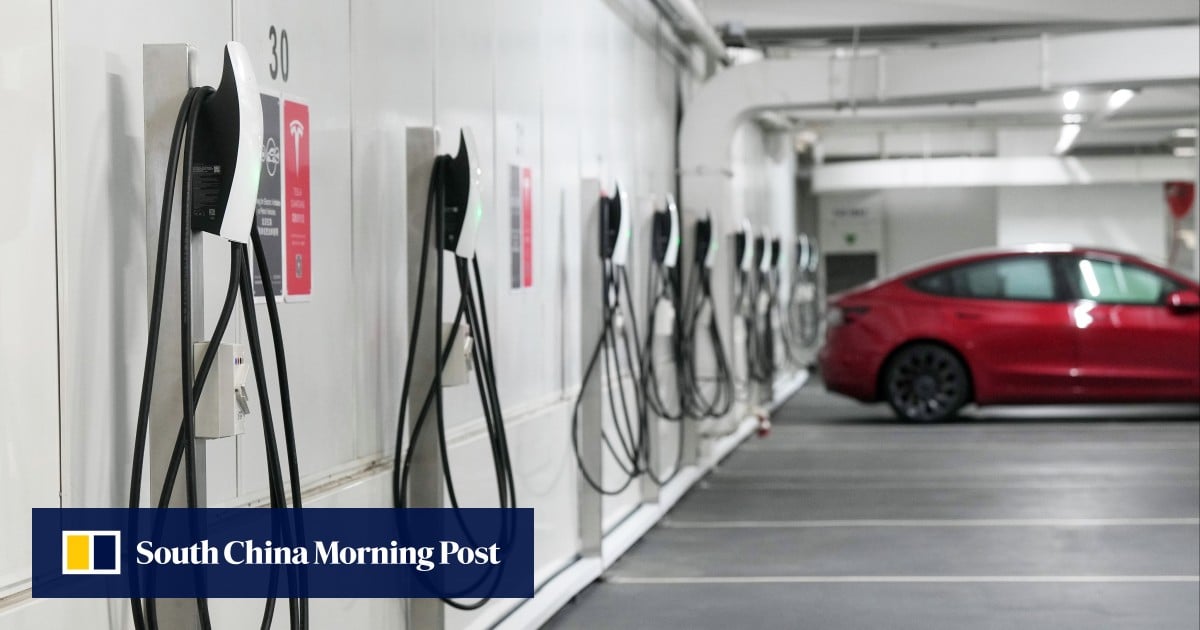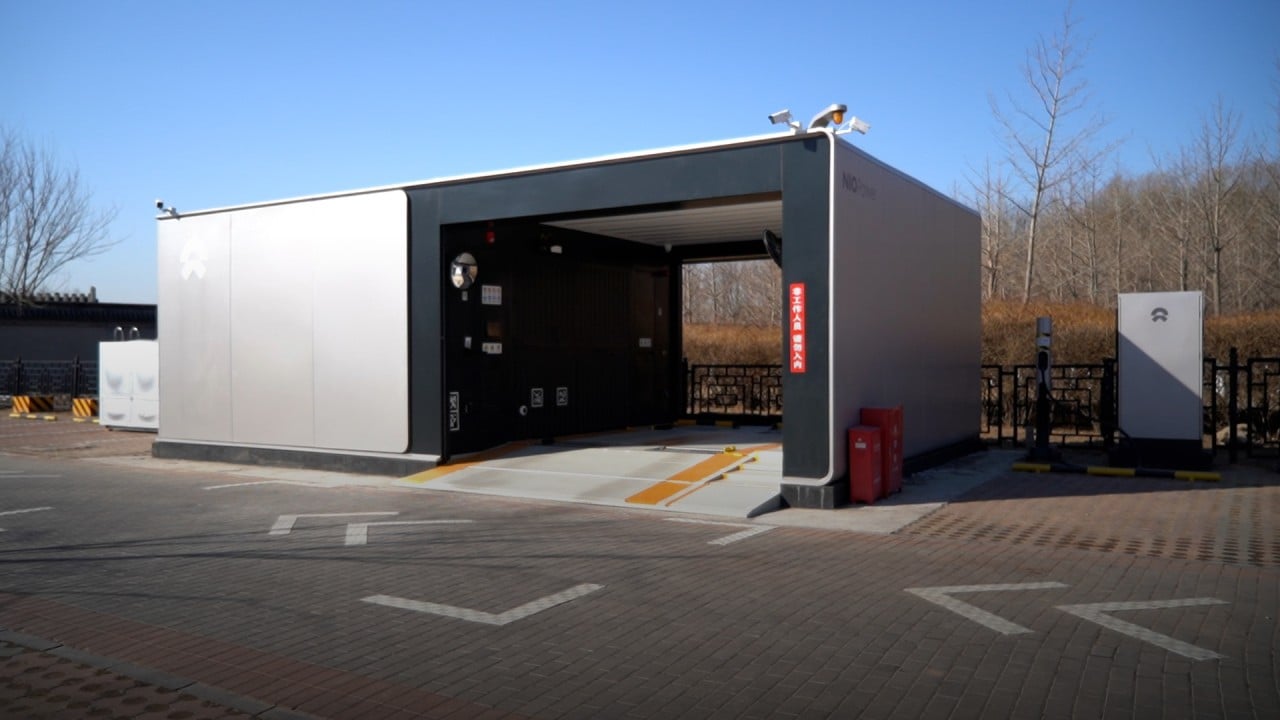
07 Feb Hong Kong’s commercial developers must step up to charge up as city’s growing EV fleet leaves a shortfall in charging stations, CBRE says
“Fast chargers are also likely to attract stronger demand near residential clusters, where users can charge their vehicles while grocery shopping,” according to the report.
Although the changes are unlikely to herald a big reset for the city’s property sector, providing EV chargers is one way to “future-proof buildings,” said Marcos Chan, head of research at CBRE Hong Kong.
The war for domination in the world’s No 1 electric car market
The war for domination in the world’s No 1 electric car market
Meanwhile, the largest automobile companies in the world such as Porsche, Volvo, BMW, Hyundai, Kia and Toyota are all forecasting that from this year EV sales will account for a significant portion of their sales.
In the cases of GM and Lexus, all new car sales will be EVs by 2035, according to data compiled by CBRE.
Demand has kept up with burgeoning supply. In 2022, for example, EVs accounted for more than half of the city’s private car sales, the highest proportion in Asia and the third-highest in the world for that year, according to CBRE.
Despite lion’s share of market, Chinese EV battery makers in image struggle
Despite lion’s share of market, Chinese EV battery makers in image struggle
“Despite being a small market, Hong Kong is home to many EVs, the number of which grew from 10,670 in 2018 to 70,409 in November 2023,” the report said.
The electric car industry is likely to usher in changes in the property sector that go beyond the need for chargers, CBRE said.
The city’s real estate will have to find ways to capitalise on the government’s push for Hong Kong as a location for EV technologies research and development. EV battery manufacturer CATL has agreed to establish an R&D hub and its international headquarters in Hong Kong.
Car battery manufacturers may also consider establishing value-add services in Hong Kong such as sales and marketing, boosting the need for office space.
The recycling and storage of EV batteries is also likely to spur demand for industrial and warehouse space, while car service centres may need to transform their premises to accommodate the needs of EV owners.

